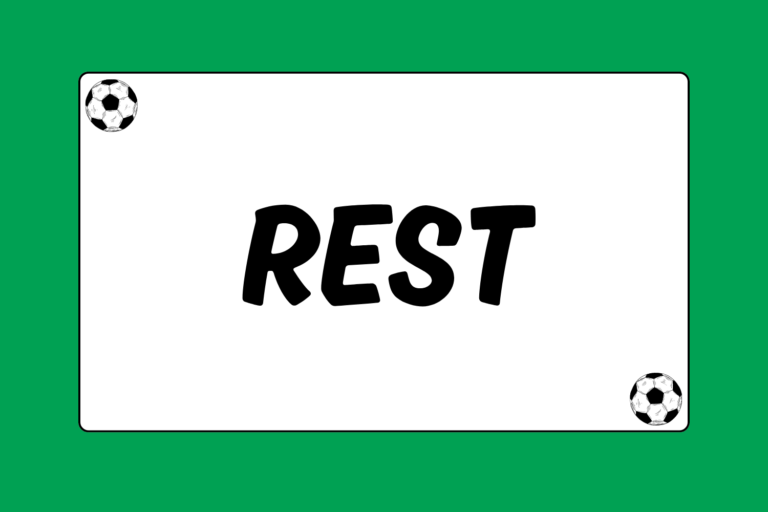Soccer camp is a unique, challenging, and rewarding experience that every soccer player should enjoy during his youth career. Soccer camps let you compete with players of the same age, size, and skill level. More importantly, they help you have fun on the soccer field, building a love for the game through teamwork, camaraderie, and success.
For most players, the practices and games in a season make it easy to get familiar with the game and develop a skill set that can continually be improved. But most players spend years playing with, and against, the same athletes on the same fields in the same towns and cities. Soccer camp offers a unique chance to make new friends and try out new skills while working with new coaches. The best camps are a great combination of instruction and fun, and offer the three distinct advantages outlined below.
A New Environment
Many athletes enjoy the game, but have trouble meeting the scheduling obligations of regular practice and games during the season. Things like school, work, and other responsibilities can sometimes take away from the game; as a result, it can be difficult to quickly develop new skills and talents.
At soccer camp, however, the only obligation you have is to play soccer and improve as a player. You’ll be grouped with athletes based on similar abilities and interests, all in a new environment. Soccer camp frequently reveals talents and skills that you may not have known that you have, such as leadership skills, ball skills, or a love for competition. Players also get the chance to try playing a new position, which can also be very rewarding.
Mental Edge
For new or younger players, a week-long residency camp away from home can seem like a scary scenario. It’s important to play up the rewards, and ensure players that the fun they’ll have is worth it.
The Chance to Develop Life Skills
There’s something about being put in an unfamiliar situations that makes people learn about themselves. Being placed on a new team, working with new coaches, and playing new competition can often reveal new and unknown traits, such as…
- Leadership abilities
- Teamwork skills
- Good sportsmanship
- A love of exercise
- Competitive desire
You’ll gain confidence from knowing that you can be thrust into a new group of athletes, and leave with a sense of accomplishment. And depending on how well you perform, you might also leave with a trophy.
A Great Learning Experience
Despite all of these advantages, the biggest reason to go to soccer camp might be the chance to work with coaches who can elevate your game and receive instruction in a smaller group. Most camps can offer better facilities and staffing than a typical youth league, and have low coach-to-player ratios that leads to one-on-one skills training.
At most soccer camps, you’ll be introduced to new training methods and trends in the game, while learning from positive role models. Soccer camps usually emphasize consistent activity, utilizing team-building drills that force you outside of your shell and limit downtime. They also give you a chance to work on fun skills like juggling, bending the ball, and striking from distance that you don’t normally get to do in practice.
Mental Edge
Soccer camp also motivates many players to want to play in college. Since many soccer camps are held on college campuses during the summer, they’re good exposure to the world of college athletics.
How to Pick the Right Camp
Finding the right soccer camp can be a challenge, especially in warmer states where there are many choices available. The first step is to know what you’re looking for. The camp you decide on should be product of your current skill level and where you want to be when the season starts. The skills you’re working on for the season should fit any or all of the following categories:
- Skills and technique development
- Strength and Conditioning
- Tactical Development
- Sports Psychology Coaching
While advanced players will be looking for camps that emphasize all four facets, beginning players may benefit the most from camps that stick to skills and techniques.
There are many different types of camps that help develop technical skills in players. Knowing which type of experience you’re looking for can help you decide:
Day Camp vs. Residential Camp
Day camps are a smaller investment than residential camps, both in involvement and complexity, as well as price. Some players opt for two-day camps during the summer over a single week-long residency camp. Residency camps offer a full-time soccer experience, and are great for developing a love for the game. The rewards are almost always greater in terms of social growth and a renewed confidence on the field.
General Camp vs. Position-specific Camp
Position-specific camps are typically better suited for experienced players who’ve spent multiple years at a position, and know exactly what they want out of a camp. This is especially true for goalkeepers, who stand to gain a lot from being around other keepers for an extended period of time. General soccer camps are usually less regimented, and have the benefit of letting players explore new aspects of the game.
Advanced Camp vs. All-levels Camp
Elite or advanced camps often last longer than a week, and emphasize trial-and-error skill development over the course of many practices and games while working closely with coaches. All-level camps are usually best for players until they sense they are not learning enough during the experience. Unless you have reached this point, all-levels camps are the right destination.
Hot Tip: Study Up
Look for videos, pictures, or testimonials when picking the right camp for you. Most camp websites make guest feedback available, and let you see what the experience will look like before you sign up.
When to Sign Up
Enrollment usually begins in the spring for summer soccer camps. Since most soccer leagues have seasons that last through the fall months, it’s easy to forget to sign up for soccer camp when other sports are going on.
Don’t let your camp experience be out of sight, out of mind. If you begin thinking about soccer in the spring, and sign up for soccer camp well in advance, you’ll probably be ahead of the game once the new season rolls around.





